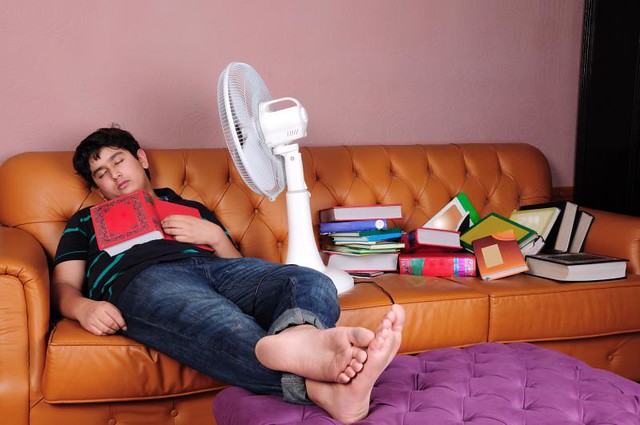
Image by: mrehan
Are you busy living the typical student lifestyle seen in the movies? Do you wake up at lunchtime on your friend’s couch, with a blanket of beer cans on top of you and knowing you’ve already missed your morning lectures? Even worse, you have a coursework deadline looming; in a few days, you won’t be up all night because you’re at a party, you’ll be up all night hitting your keyboard furiously and drinking litres of coffee in a bid to get that essay finished on time.
See what’s wrong with this picture? There isn’t much of a good night’s sleep involved, is there? Coffee and power naps cannot be a replacement for a recreational slumber forever; at some point your body will fail you.
Stress and Insomnia
Missing lectures because of lie-ins can turn your already stressful time around the exams into a nightmare. Some students don’t bother to take lecture notes and will have to get them all at once at the end of the year. The queues for the copying machines are enormous and you might mistake the young scholars for zombies with their hanging shoulders, bloodshot eyes and occasional groans.
Many students, trapped in a vicious cycle of late nights and lie-ins, suffer from both stress and insomnia. No matter what caused your late nights, a party or writing an assignment, it disrupts your body’s natural rhythm. Often insomnia is the result and you might not be able to have a good night’s sleep even if you wanted to.
After all, your body and brain need sleep to recover. While sleeping, the brain processes all the information and impressions of the day. To not be able to do this could even cause depression and other mental health problems.
What to Do
So, what can you do? Well, quite simply, make some changes to this sleepless lifestyle! It might be hard to hear, but maybe it’s time to cut back on a few party nights.
Improve your time management to avoid procrastination. You don’t have to write all your papers last minute if you plan ahead and set priorities.
If you’re already having trouble sleeping, try to get into a fixed routine of going to bed and waking up at the same times each day. Even if you’re lying in bed awake feeling like you could be working instead, eventually your body clock will reset itself and you’ll find yourself feeling sleepy around this time in the evening, and find it easier to get up in the mornings.
Don’t believe the myth that alcohol will make you sleep better! In fact, it’s more disruptive to your slumber, as it will make you thirsty and your body will produce adrenaline to compensate for the alcohol.
Everyone knows that falling asleep is harder when you’re agitated in some way. If you’re angry at someone, try to resolve the problem as soon as you can. Let go of things you cannot change. Distraction in the form of reading a (non-course related!) book before you go to bed might also help.
If you can’t sleep because you have too many things on your mind, try to write them down and see if it helps you forget about them. Then try to relax with positive thoughts; it will be harder to nod off if you keep telling yourself that you can’t.
If you’ve tried all of this and still find you can’t sleep, it might be time to consult your GP. Insomnia can become a serious, long-term problem and can lead to all sorts of negative health conditions, so it’s best to get medical help earlier rather than later.
Want to get more advice on how to deal with sleeping problems or get information on other student-health related topics? Check out Doctor Fox’s student guide to good sleep!
Featured images:
 License: Creative Commons image source
License: Creative Commons image source
Blog article written by Allie Redmond, a student and fashion blogger who tries not to let her student lifestyle take a toll on her beauty sleep!
0 comments:
Post a Comment